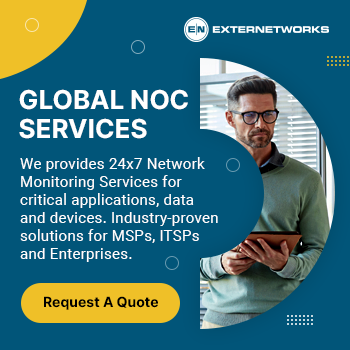Managed Services vs Professional Services

When it comes to IT infrastructure, there are two main types of service providers: Managed Services and Professional Service Providers (PSP). Both types of services come with their pros and cons.
MSPs provide a range of services, such as network management, security monitoring, cloud computing, and backup solutions. PSPs offer a wide array of technical services, from application development to data center design and implementation. Both types of services are designed to meet specific requirements. The differences lie in the required expertise, the type of support provided, and the cost involved.
What are Managed Services?
Managed services are cloud computing solutions that provide businesses IT support and maintenance services. They can be offered as part of an outsourced IT service or as a standalone solution. They typically include 24/7 monitoring and management of servers, networks, applications, and data storage systems. The goal is to reduce costs by taking care of routine tasks so employees can focus on their core business activities.
Managed service providers (MSPs) offer a wide range of products and solutions. Unlike professional service companies, MSPs focus on helping organizations manage their daily operations rather than providing specialized expertise.
The goal is to help companies manage their IT infrastructure by providing tailored solutions for specific needs. An MSP will usually offer custom solutions packages to address these needs. Let’s take a closer look at what an MSP may include.
Helpdesk Support
Many small and medium-sized businesses (SMBs) don’t want to spend too much time or money on their IT infrastructure. However, they still require some level of support from an external provider.
Whether it’s troubleshooting technical problems, keeping up with software upgrades, or dealing with malware, help desk support will keep your business operating smoothly and without interruption.
24/7 Network Monitoring
With round-the-clock network management, you can monitor your network 24/7, even when you’re not there. It’s less expensive than having someone who monitors your network constantly.
Cybersecurity Maintenance
Maintaining constant network monitoring makes cybersecurity easier to maintain, and it’ll be easier to detect any potential cyber threats and vulnerabilities. An active defense can be quickly deployed to minimize the risk of costly outages or major data breaches.
You can also get cybersecurity support from a managed service provider (MSP) that offers both cybersecurity maintenance and dedicated cybersecurity.
Data Backup and Disaster Recovery (DR)
Backup and DR are essential components of your company’s BCP. A managed service provider (MSP) can help companies protect their data by backing up important files regularly, and it can also help them avoid expensive cyber security breaches.
What is Professional Services
Professional services, also known as consulting services, are provided by experts trained to work with clients to solve specific problems. These professionals may be employed directly by companies or hired through third parties like staffing agencies. Their expertise comes from years of experience working with clients and solving complex issues.
A professional IT services provider carries out isolated projects with a clearly defined beginning and end.
They’re designed to solve specific challenges and address particular pain points. Most often, their goal is to increase efficiency or improve existing processes.
Here are some examples of professional IT services
Deployment
As technology advances, even the most reliable hardware eventually becomes outdated. Companies often replace their equipment every 3-5 years to keep up with new technologies.
Software deployment is an important part of any business. Whether patching servers or updating applications, deploying software is one of the most important tasks for IT professionals.
However, deploying an application is usually challenging—especially if you’re working internally. On the other hand, outsourcing the project to a professional IT service provider can significantly shorten the time required to deploy the application.
Cloud Migration
Cloud migrations are often necessary steps in organizations’ digital transformations. However, they’re notoriously difficult for smaller companies.
However, their long-term benefits outweigh the short-term inconvenience of using cloud services; they provide an affordable storage option with better protection and increased scalability.
As more businesses move, professional IT services are there to ensure it’s smooth and error-free.
Advanced Troubleshooting
Many SMBs opt to retain at least one IT pro on their payroll. It’s a quick and reliable way to obtain tech support for various day-to-day issues.
These large-scale troubleshooting projects often require an entire team with specialized skills and knowledge, which means they’d probably be best handled by outsourcing.
IT Consulting
IT consulting is an excellent choice for companies looking for new ways to solve their business issues or achieve their business goals.
If you’ve ever experienced the frustrations of a stalled, delayed, or entirely unsuccessful IT project, working with an experienced IT consultant could help you get back on track.
Managed Services Pros and cons
Pros of Managed Services may include
- Preventative: Manage your network so that it works seamlessly and efficiently, not just after something goes wrong. Regularly monitor your system’s health and performance, and make sure everything is running smoothly. Make sure that all your software is updated regularly and that any security patches are applied promptly. You may also want to consider having a third party perform routine checks on your network, such as a monthly scan of your server logs. That way, you can catch issues before they cause severe damage.
- Ongoing: Manage Services include 24/7 customer service and ongoing maintenance for various IT needs. You don’t need to worry about waiting until office hours or calling during business days. Since the service is always there, you need to contact them whenever an issue arises. You can build a long-term relationship with them, so you know what to expect and how to work together.
- Easy budget: Managed service providers (MSPs) usually provide their clients an easy way to manage recurring expenses by providing them with a set monthly fee.
Cons of managed services may include
- Excessive options: Depending on what needs to be done, a longer-lasting solution might not be the best option. Perhaps your smaller IT staff can handle regular upgrades and maintenance, or you only need help with a single deployment. If your staff can handle the daily tasks just fine, managed service providers could be an unnecessary expense.
- Restricted: On the other hand, if you’re making frequent updates to your system or only require support from time to time, managed solutions may not meet all your requirements.
Professional services Pros and Cons
Professional Services Pros Include
- One-time: If you need help for only one project, situation, or problem, you probably don’t need ongoing support. You may not even need to pay anything at all.
- Focused: Professional service addresses a specific issue. It is less complex than a full project management solution but offers more flexibility than a simple task list. You can expect thorough support throughout most or all stages of the process.
- Versatile: It doesn’t matter if you’re not limited to standard IT problems. A professional service provider can create a solution for unusual situations.
Cons of professional services include
- Future maintenance: With professional services, you can be on your own for any future maintenance issues. Once the project is completed, pro services typically end there, and you’ll need to arrange for follow-up services or take care of maintenance on your network.
- Slower response: If you’re looking to use professional service providers to respond to technical issues, they won’t be an ideal solution for dealing with network crashes or critical incidents. They might take some time to get set up, which could mean losing revenue during the downtime.
- Plans: You should know your project before hiring a professional services firm. If you need to change your plan midstream, you might incur extra costs or time spent. As the project grows, you’ll be able to see if you’re making progress toward your goals.
Managed Services vs Professional Services
The key differences between managed service providers and professional service providers are the time frames and scopes of work involved. Managed services are ongoing and usually provide support for many different aspects of an organization’s IT needs daily. A professional service typically focuses on solving a particular problem or addressing a specific challenge.
Each company has its unique needs and requirements, so the best solution for one may not be the best solution for another. Other important factors include the business’s size, needs, and capabilities; some companies are much more technology-focused than others, and some may have a more extensive internal IT staff to rely upon. Managed and professional service providers can provide organizations different benefits depending on their needs.
In conclusion, both types of organizations offer valuable services to their customers, but each service has a different approach to providing those services.





